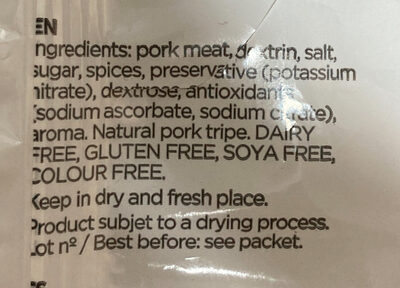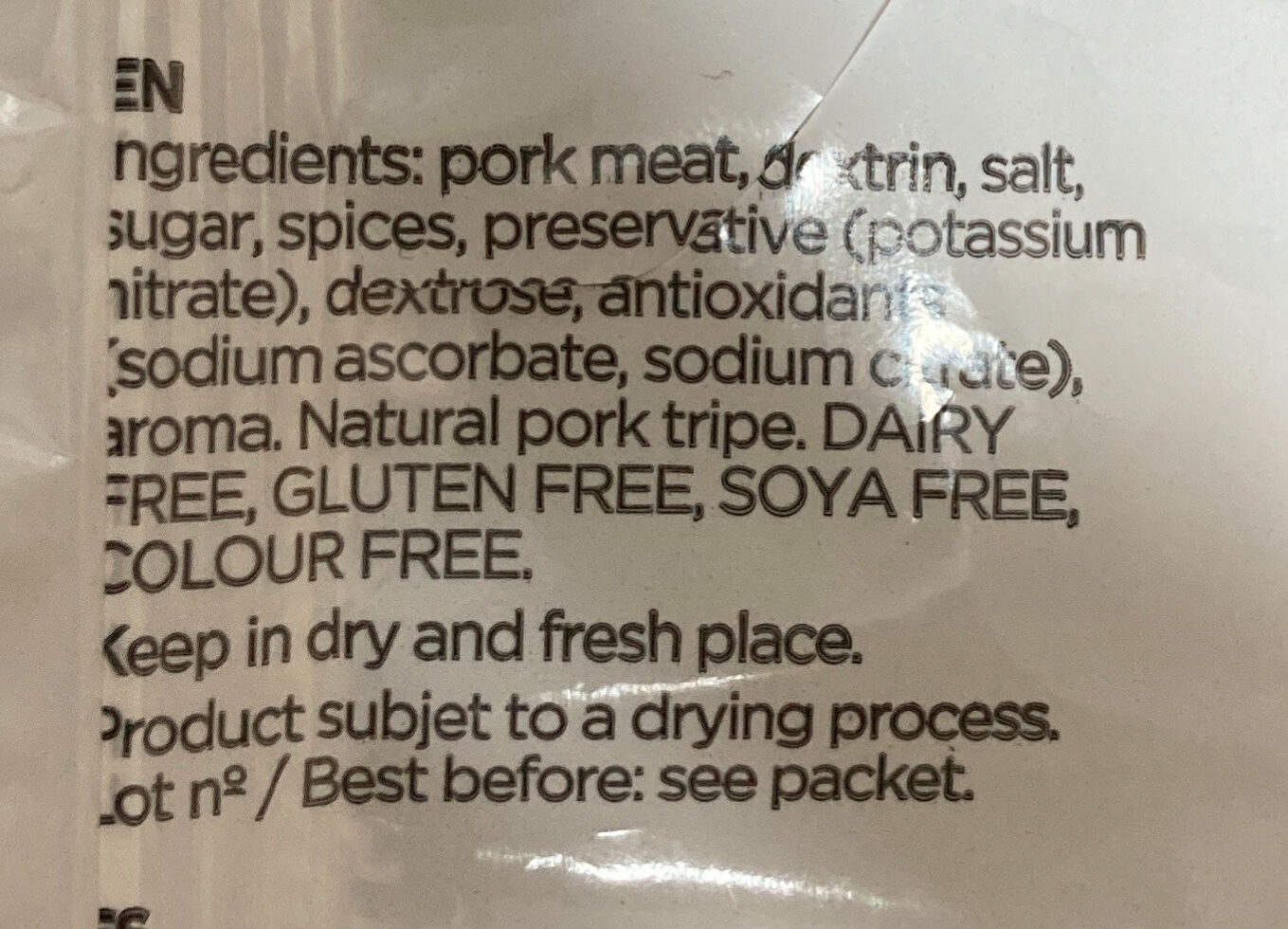Longaniza extra - Can Duran - 215 g
Aquesta pàgina del producte no està completa. Podeu ajudar a completar-la editant-la i afegint-hi més dades a partir de les fotos ja disponibles, o fent-ne més amb l'aplicació de androide o iPhone / iPad. Gràcies!
×
Codi de barres: 8425214001865 (EAN / EAN-13)
Quantitat: 215 g
Marques: Can Duran
Categories: Productes amb base de carn, Carns, Carns preparades, Embotits, Embotits francesos, en:Sausages from Spain, fr:Fouets catalans
Etiquetes, certificacions, premis:
Lliure de gluten, Punt verd, Sense colorants, Sense lactosa, Lliure de soja, en:Without addition of dairy products
Origen dels ingredients: Espanya
Codi de traçabilitat: ES 10.05427/B CE
Enllaç a la pàgina del producte en el lloc oficial del productor: http://www.canduran.com
Botigues: Bonpreu
Matching with your preferences
Entorn
Empaquetament
Transport
Report a problem
Fonts de dades
Producte afegit per kiliweb
Última modificació de la pàgina del producte per yaroslaviv17.
La pàgina del producte, també editada per duhowpi, elcoco, openfoodfacts-contributors, roboto-app, thaialagata, yuka.BKB4A_SPEMIEN8bv3dlu8QahFsDnLf1nJyEoog, yuka.Fu9GEYSNQ9MYJ8jpyYgbjB-jGs3iA8VdRUc8og, yuka.U293WlBJb1IrTmd1bHRzK3BRdlQyY2dwL0x6NFFtUG5KZE1lSVE9PQ, yuka.ZUowT09wOWRudFlUdXNjU3owdUx4K2hwbHBxb1FXZVpkZkFxSVE9PQ.








